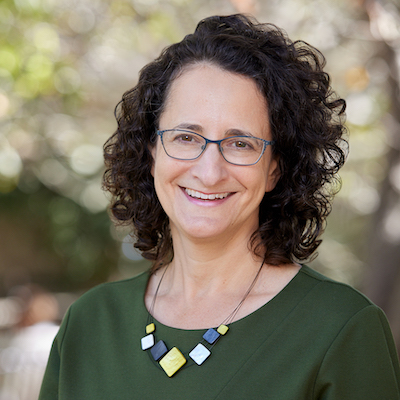The expanding role of sustainability leadership
As the sustainability role moves into the wider business imperative, sustainability professionals have to understand the entire spectrum of the company's operations. It's no small task. Read More

Late last year, I sent a short survey to my network of (mostly) sustainability executives across a range of small and large organizations covering multiple sectors. My objective was to understand how the corporate sustainability role is shifting to include a greater scope of responsibilities and influence.
We received over 60 responses from (mostly) heads of sustainability at Coca-Cola, Adobe, Autodesk, AMD, Campbell Soup, IDEO, Starwood, Owens Corning and Tiffany (to name a few). The responses were forthcoming and clear. Sustainability professionals are quietly and gradually expanding their scope and responsibility programmatically and strategically.
A shifting scope of work
Some of this is in response to a rapidly changing ecosystem of options. Many more companies can take advantage of clean energy solutions to address their environmental impact; therefore, they can cross over from compliance to aiming for and measuring positive impact. The rest seems to be a direct harbinger of our world’s changing realities.
We saw a lot change for businesses in 2016. The Paris Agreement brought with it new fervor and rigor for reporting and the need for transparency. Guidelines evolved into standards. Issues such as forced labor, discrimination, migration and social empathy gained speed across corporate corridors as important and necessary to address. And of course, many climate change-related catastrophes around the world hastened our need to look at our environmental impact with resolve. For some that meant understanding how to begin calculating the value of nature. For others, it meant decoding their material impact, and for many others this meant putting a finer point on their organizational culture.
As Bruno Sarda, recently appointed director of sustainability at NRG, put it, “We are increasingly shifting from CSO to CSMO (chief sustainability monetizing officers), which is a very good thing. All of us need to feel accountable not just to external benchmarks and stakeholders but also to make the business case for sustainability within our own businesses.”
This shift requires a wide skill set and knowledge base. Darin Atteberry, city manager for Fort Collins, said, “The more cities and counties learn about sustainability, the more we see the linkages that can be made between environmental protection, economic development, social equity, innovation and a variety of other areas. When these overlaps are observed, it becomes a natural process that CSOs take on a greater role in service provision and management.”
This response is taking shape across America’s corporations and their C-suite functions, albeit in myriad ways.
Expanding role
For example, Coca-Cola’s Chief Sustainability Officer Bea Perez said she sees the functions of sustainability and marketing coming together more than ever before “as purpose and sustainability becomes embedded in brand positioning and communications.” MGM Resorts’ Chief Sustainability Officer Cindy Ortega added that she had taken on more responsibilities in the last year because of the company’s commitment to energy management, new partnerships and local food sourcing. That’s led her to go deeper into key subject matters and therefore, touch many more parts of the business materially.
Adam Siegel, senior vice president of research, innovation and sustainability of the Retail Industry Leader Association, gave a nod to this evolution of the CSO role as well. “Most of the CSOs I know are looking to expand the scope of the issues that they focus on; still within the realm of sustainability, but a wider bucket of issues — from direct operations to supply chains — as well,” he responded. Tim Mohin, who recently announced his departure from leading sustainability at AMD to take on the top job as CEO of the Global Reporting Initiative, alluded to this as well: “The role has, necessarily, become much closer to mainstream business priorities… that has meant sales enablement by researching and discussing the implications of AMD products.”
The point they’re all making is not lost on me as I sharpen my focus on continually identifying the best talent for many of these roles. With a role as complex and as necessarily adaptive as that of a sustainability professional, it takes more than a traditional check list to find leaders who have much more than the functional attributes of a job.
Change leadership
To become true sustainability leaders, these executives and their cohorts are starting to become better at understanding and recognizing their business’ impact — all of it: on people, on the planet, on communities, on the evolution and rise of societies, and on their peers and competitors. As this recognition has deepened, so has their ability to quantify, qualify and set roadmaps. Susan Arnot Heaney, director of marketing for the Rainforest Alliance, says, there is increasingly “an expectation that those in a sustainability role to understand the interconnected nature of sustainability with all areas within the business.”
My respondents feel that as sustainability moves out from under the tent of segregated functions such as “supply chain,” “compliance,” “environmental health and safety” and “government affairs,” and into the wider business imperative, sustainability professionals are having to understand the entire spectrum of the company’s operations and engage in cross functional teamwork.
No small task, for sure.
Frank O’Brien-Bernini, chief sustainability officer of Owens Corning, gave me some useful context:
More and more, me and my peers are leading big change initiatives (often with some grounding in sustainability). I think it’s now well recognized that change leadership, and the ability to influence, are key competencies of successful sustainability leadership. For example, I am now leading a major initiative to expand and accelerate our global wellness impact, with an aspiration to eliminate all non-communicable, lifestyle induced disease.
And this only seems the beginning. Welcome to a year of transformation and leadership.













